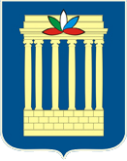ALEKSANDR ALEKSEYEVICH ZHOLOBOV: “TEACHING IS MY DESTINY”
Aleksandr Alekseyevich Zholobov, PhD in Engineering, professor at the Department of Machine Building Technology, has been working at the Belarusian-Russian University for more than 50 years. Throughout his career, Aleksandr Alekseyevich has written about 400 research papers, including 45 publications: 32 textbooks and study guides (many of them have been published in the Russian Federation), 7 scientific monographs, and 6 books on the history and development of the Belarusian-Russian University. Eight PhD dissertations have been defended under his supervision. Aleksandr Alekseyevich has more than 40 inventor’s certificates and patents of inventions and utility models. He is the author of several promising projects in the education system of the country and the city. Aleksandr Alekseyevich participated in creating unique legal documentation for a university with double subordination: to the Ministry of Education of the Republic of Belarus and the Ministry of Science and Higher Education of the Russian Federation. He has received about thirty awards and commendations in recognition of his outstanding contributions and achievements. His main research activities are focused on forecasting and ensuring the quality of technology systems at the stages of their design and manufacturing as well as on innovative teaching technologies in higher, pre-university and postgraduate education. This year marks the 50th anniversary of Professor Zholobov’s teaching career.
We asked Aleksandr Alekseyevich several questions about his professional activities.
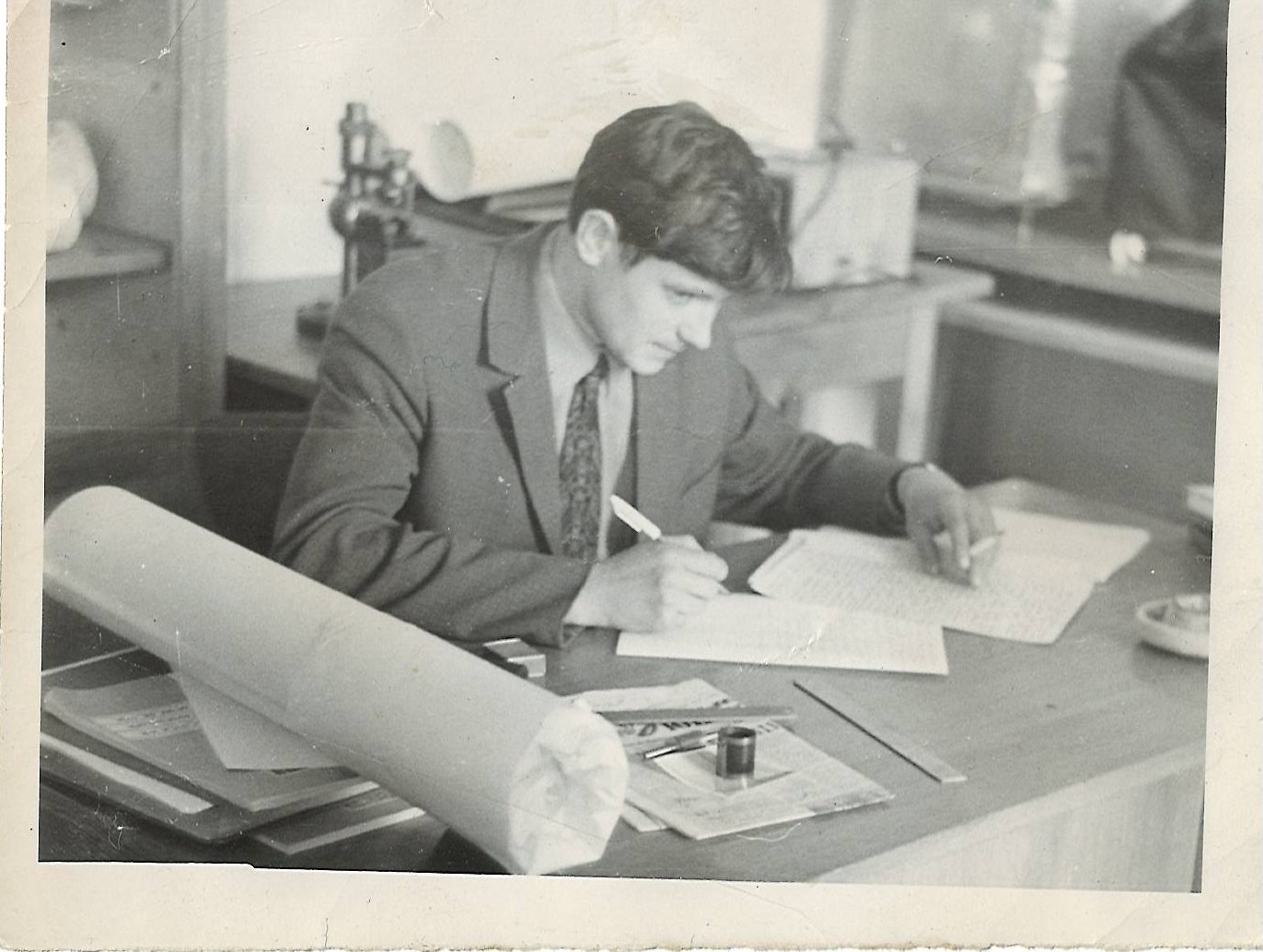
“I started as a laboratory assistant of the department”
– How did you start your university career?
– I received an offer to work at the Mogilev Machine Building Institute from Yury Mikhailovich Ivanov, the head of the Department of Machine Building Technology, Metal-Cutting Machines and Tools. During that period I worked at the Mogilev City Integrated Industrial Plant. During his visit to the plant Yury Mikhailovich saw me operating a lathe (I was machining complex parts). He advised me to take a higher education course, but at that time I was already a 3rd year part-time student of the Mogilev Machine Building Institute. Then Yury Mikhailovich offered me a job. In this way, I started my career at the institute. I started as a laboratory assistant of the Department of Machine Building Technology, Metal-Cutting Machines and Tools. After a while, the Department was divided into parts: the Department of Metal-Cutting Machines and Tools and the Department of Machine Building Technology. Professor Pavel Sergeyevich Chistoserdov, my research supervisor, was appointed head of the Department of Metal-Cutting Machines and Tools. I followed him and continued working at the institute as a mechanic of the Department of Metal-Cutting Machines and Tools. But when Yuri Mikhailovich left, Pavel Sergeyevich became the head of the Department of Machine Building Technology and offered me a position of an assistant.
“In the early 90s, the university experienced significant changes”
– What is the most interesting period in your career?
– The early 90s. During that period, the university experienced significant changes. First, the faculty of professional development was created; later it was transformed into the center, and then into the institute. The Mogilev Machine Building Institute became the first higher education institution in Mogilev (there were 3 higher education institutions in Mogilev) with the faculty of professional development. Besides, we started a technical lyceum affiliated to the Mogilev Machine Building Institute (currently, it is Lyceum No. 3), set up a faculty of pre-university training. Moreover, we were among the first in the country to develop experimental syllabuses for four-year Bachelor courses. These Bachelor programs were in use for some time. However, there was no demand for engineers because of problems in the manufacturing industry. We offered combined five-year programs in mechanical engineering and management. The specialists with this double major were in demand. Then, the institute began to offer programs in economics. In this way, the transformation of the Machine Building Institute into a higher education institution of an industrial type was taking place. In those days, I was Vice Rector for Academic Affairs and Continuing Education. All changes at the Institute were taking place under supervision of its Rector, Professor Viktor Ivanovich Khodyrev.
“Set the right example for your subordinates”
– Over your long career at the university, you have held the posts of dean, vice-rector and first vice-rector. What is the biggest challenge for a leader?
– The most difficult thing is to gain the respect of other people. And respect is earned in the following way: before getting your subordinates to do something, set the right example for them. If you follow the principle “Do as I say”, nothing good will come out of it. It is not easy to apply the principle “Do as I do”, i.e. to lead by example, in our scientific and pedagogical environment. It is necessary to set the right example in training highly qualified specialists, teaching and learning, research, etc. It’s difficult to cover everything at once, it takes a long time. In my opinion, “Do as I do” is the most important principle of a leader.
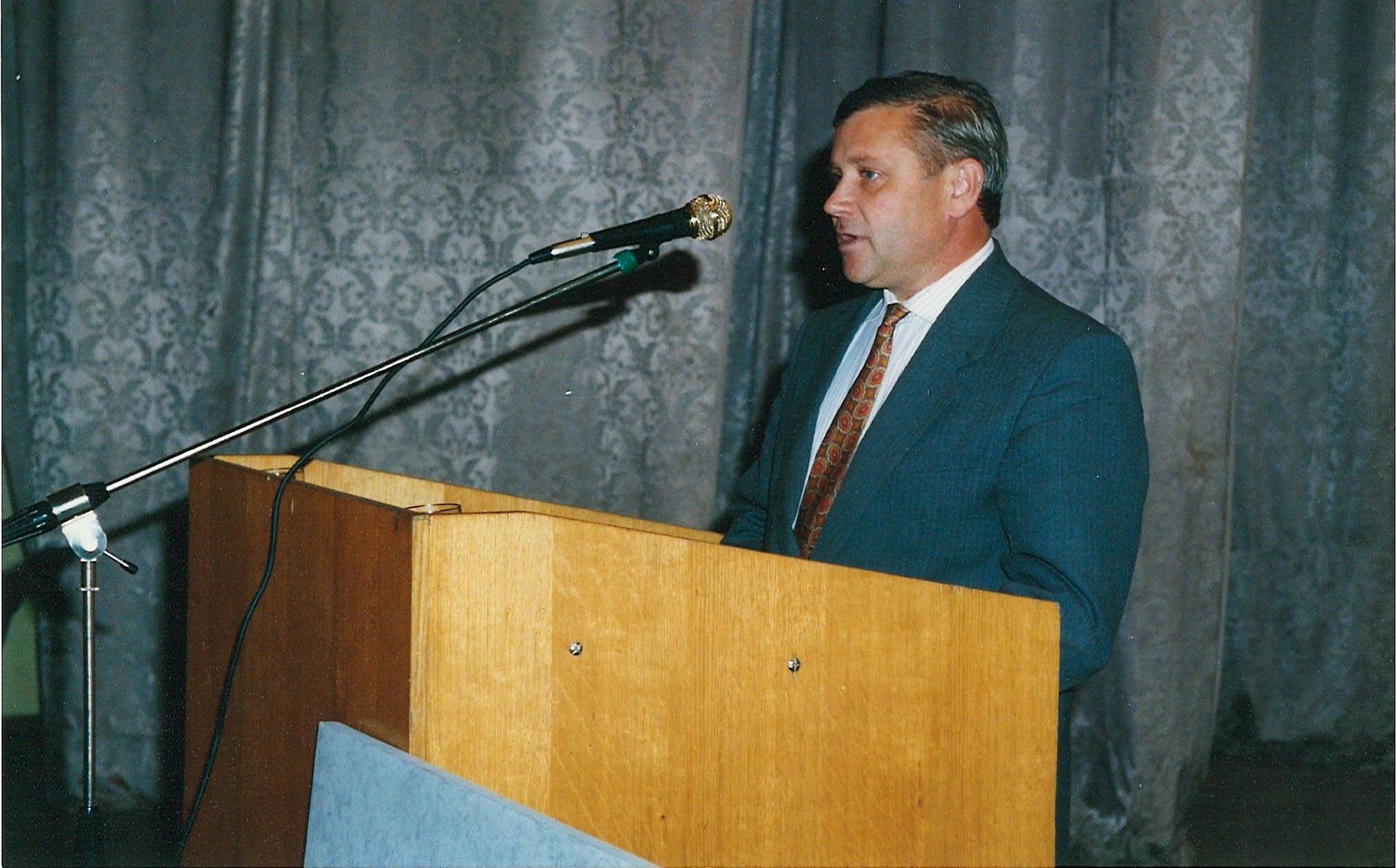
– Which role is closer to you: a leader or a teacher?
– These are different things, but one role complements the other. Good teachers possess a combination of leadership qualities. Good leaders are good teachers.
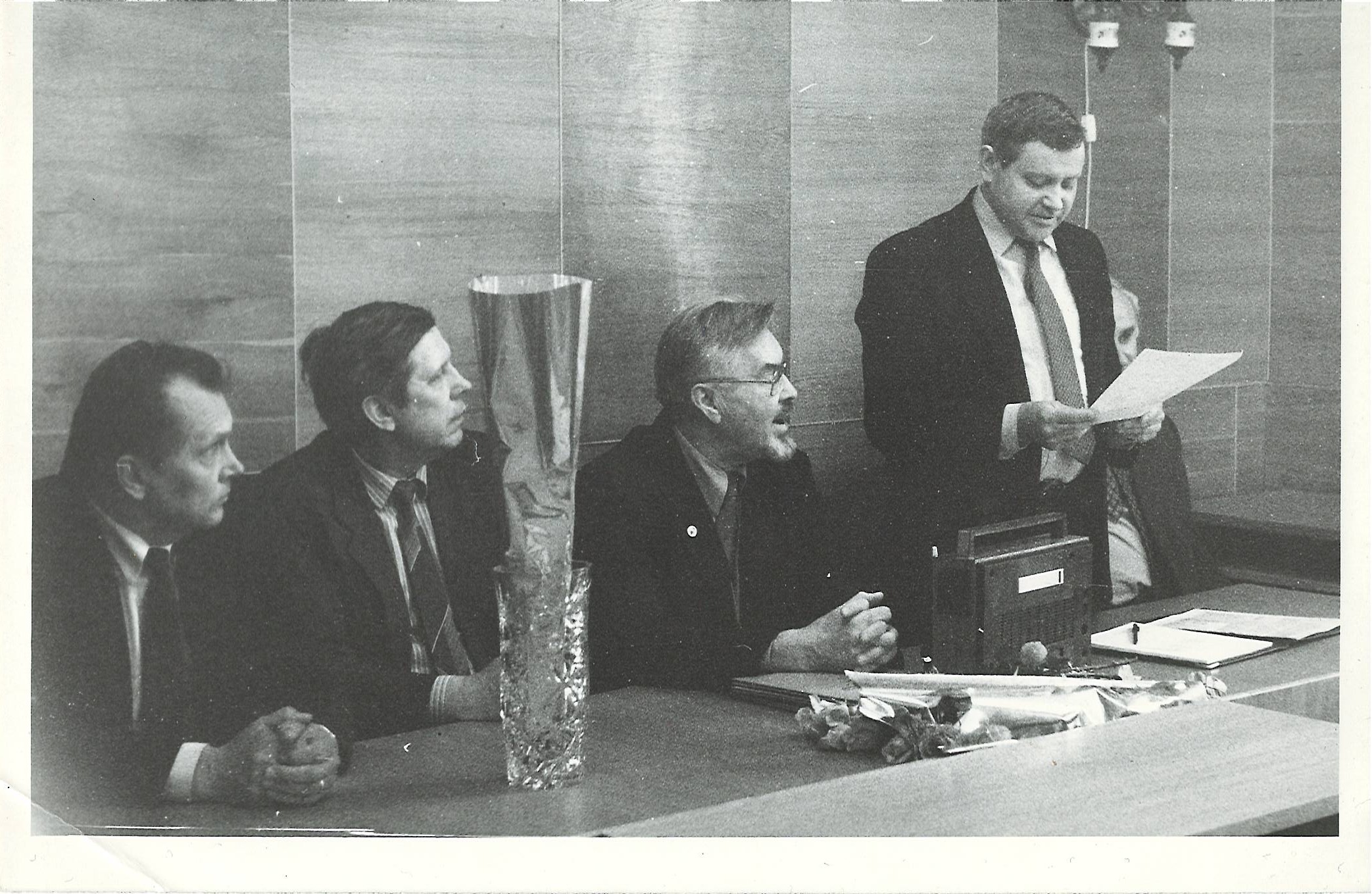
– Who do you look up to in your work and? Who is your role model?
– My teacher and research supervisor, Professor Pavel Sergeyevich Chistoserdov. It was he who helped me to get into teaching. I wrote my graduation paper under his supervision and received the first place award certificate in the national student research competition.
“Good leaders are good teachers”
– What does teaching mean to you? What do you think are the most important personal characteristics of a good teacher?
– Teaching is my destiny. A good teacher should be able to convey knowledge to students. It’s complicated. It involves a lot of work. It is not always possible to convey to students necessary information; they do not always perceive this information, sometimes because of poor educational background.
“One shouldn’t spend time daydreaming; one should take action”
– Over your long career at the university you have supervised a number of students; are you proud of them?
– Yes. I supervised 8 PhD students who defended their dissertations and earned PhDs in Engineering. Two of them are working in Minsk. They started their teaching career here, but it didn’t work out: they had higher job expectations. The other graduates work at our university. And I am proud of them!
“Teaching is my destiny”
– What is the most challenging aspect of your job?
– The most difficult thing is to make students realize how useful knowledge can be. To transmit knowledge to students, teachers need to take responsibility for their own professional development. A teacher needs to work closely with students and provide them guidance and support. Working with students on research projects helps teachers not only develop students’ skills but improve their own knowledge. This is best done through supervising postgraduate students. But not everyone is good at this activity, and not everyone is interested in it.
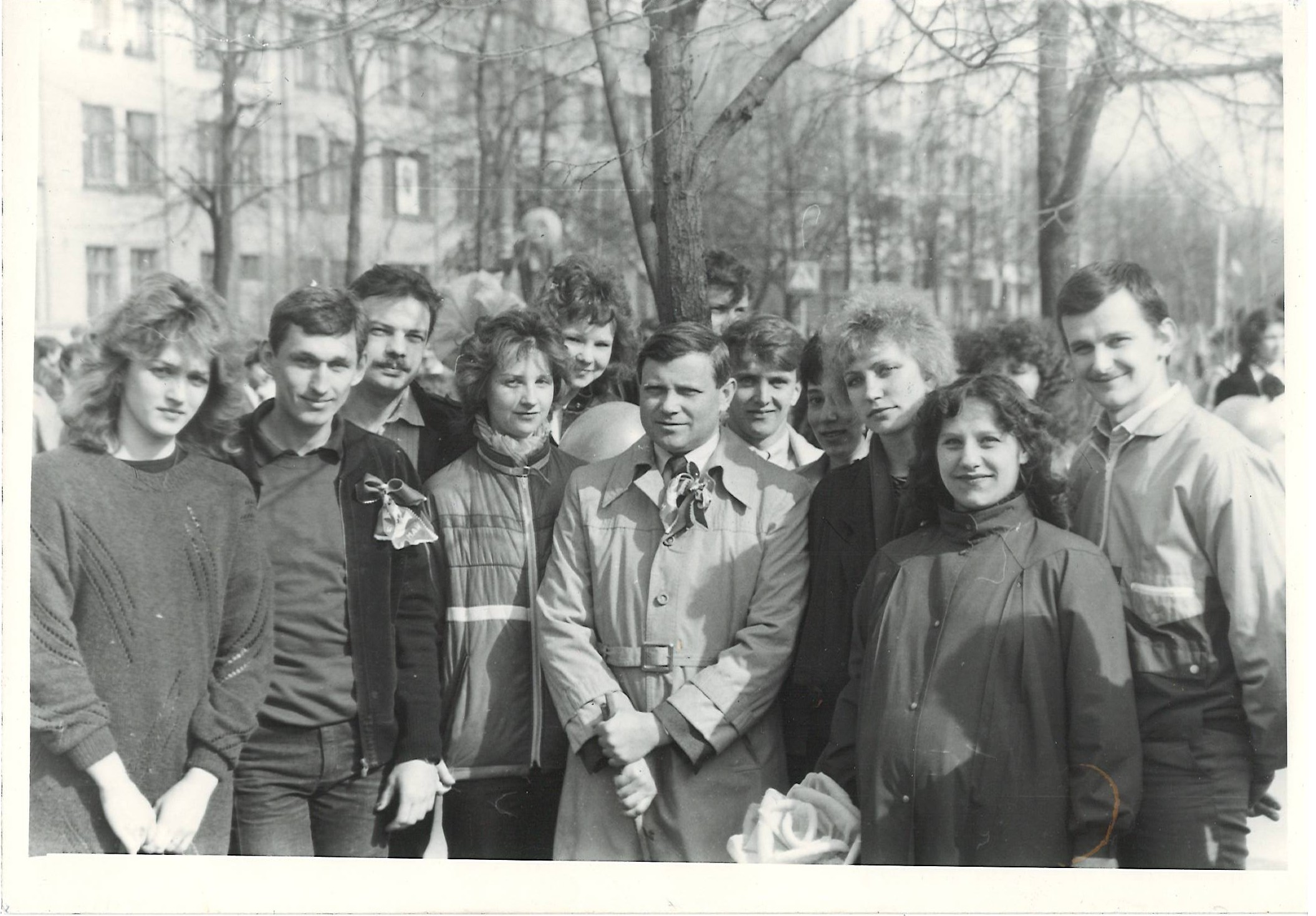
– What do you usually do in your free time? Do you have any hobbies?
– Basically, I have no free time. I move between my desks at the university and at home. I always have something to write or edit. I have 45 books published and reprinted (some have already undergone three editions). Some books are written with co-authors, others - on my own. My wife says that I sleep at my desks. But sometimes I want to forget about everything and relax. I live in a private house. There is a small fish pond nearby. I like to go fishing with my four-year-old granddaughter. I catch a few fish with a fishing rod and then we put them back into the water. I also have adult grandchildren who work and build their careers.
“My wife says that I sleep at my desks”
– Last year, your wife and you celebrated your 50th wedding anniversary. How do you combine a happy family life and a successful career?
– Mutual understanding is an important thing in a relationship. Husbands and wives shouldn’t contradict each other, they shouldn’t insist on being right. It’s often better to agree. I tell my wife: “OK, fine, whatever you say.” And this does not mean that I definitely do everything she says, there is simply no reason to make your partner feel upset.
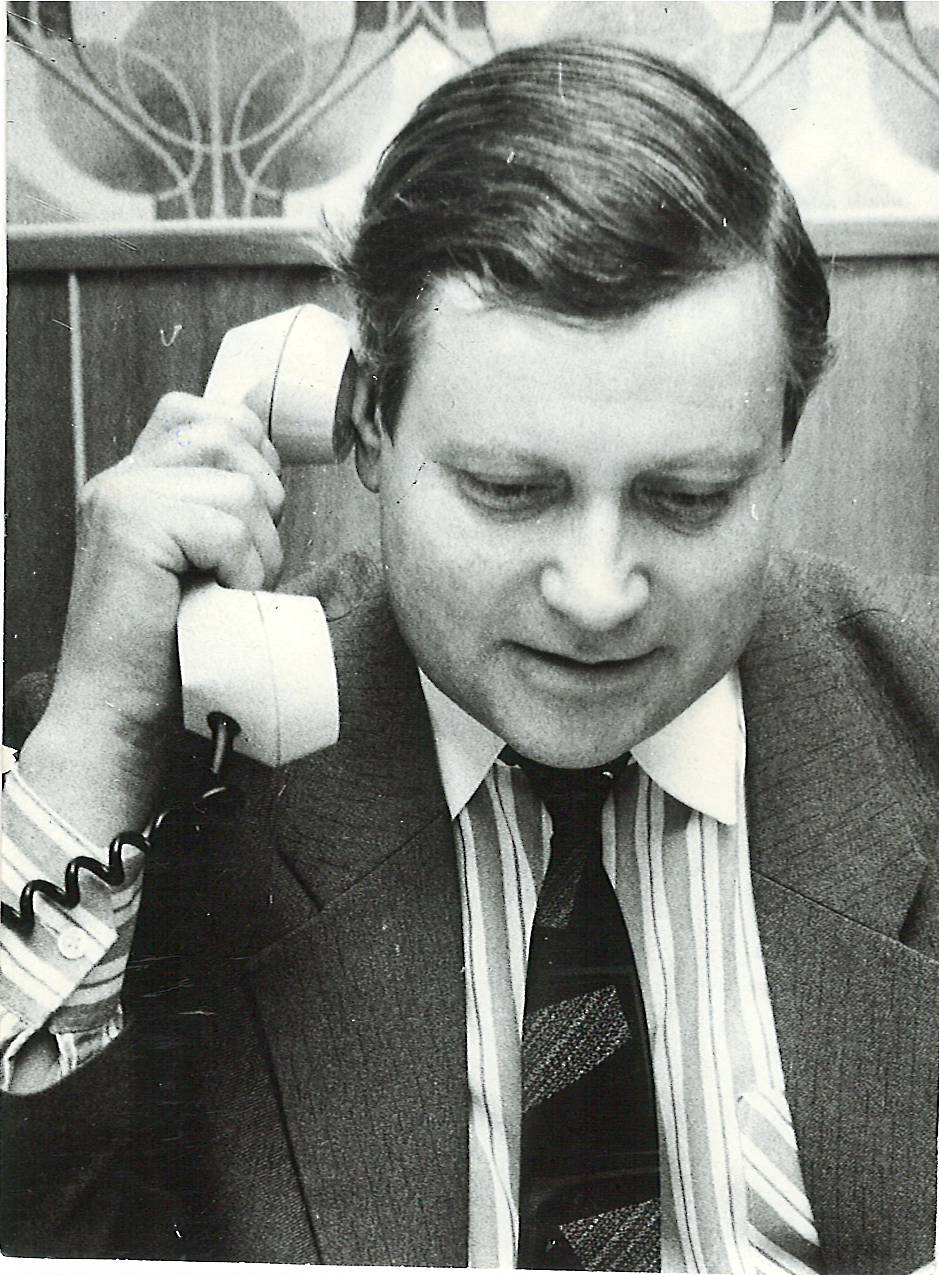
– What are you dreaming about? What are your goals?
– At my age one shouldn’t spend time daydreaming; one should take action. After all, life is a complicated thing. Two years ago, my student Aleksei Mikhailovich Fedorenko and I published the first book on mechanical engineering technology, which describes developments in the field of machining and assembly. And now we have a task to publish the second volume. We are working on it. The title of the book is “Highly Efficient Technologies and Modern Production Equipment”. In this volume, students will find useful information on modern manufacturing. Writing study guides is not an easy task. Therefore, I would like to share my experience with young associate professors who are ready to work primarily for the sake of science. That’s what I’m doing now.
“There is no reason to make your partner feel upset”
– What is the most pleasant thing in your profession?
– It’s hard to choose only one thing. You should love your job and try to enjoy every aspect of it. Some lectures are successful, and I am satisfied, some are less successful, and I am dissatisfied. But I really like it when students understand me, ask questions and participate in discussions.
We wish Aleksandr Alekseyevich all the best and success in his future endeavors.
